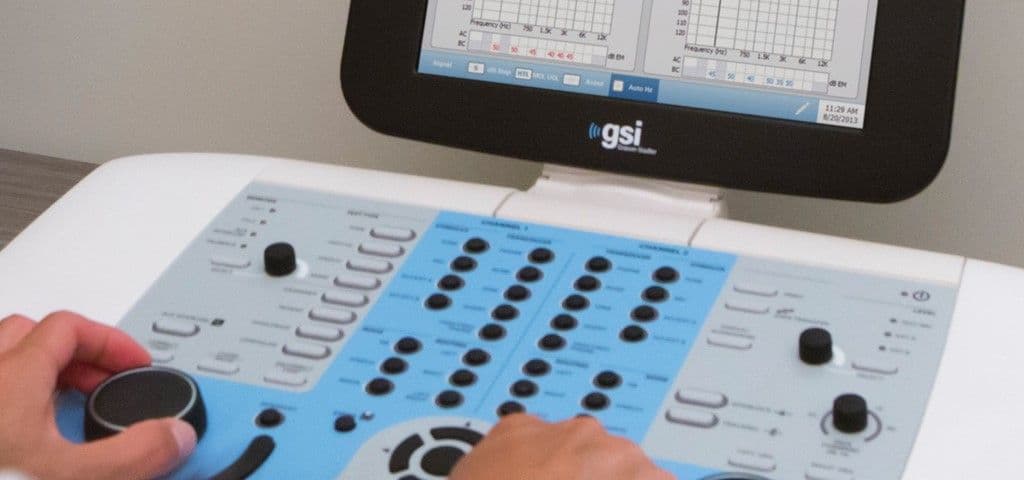Cochlear Implant Evaluations with GSI


Grason-Stadler recently hosted a webinar on AudiologyOnline featuring Dr. Joseph Dansie, an experienced clinical audiologist, who shared practical insights on using GSI equipment for cochlear implant evaluations. This session provided invaluable guidance on best practices for optimizing cochlear implant assessments. Continue reading to learn more about cochlear implant evaluations and how GSI equipment can enhance your clinic’s evaluation process.
Dr. Dansie began his journey in audiology with a bachelor’s degree in communicative disorders in 2006. He earned a doctorate from Utah State University in 2010, specializing in pediatrics and auditory learning and spoken language development. His dedication to excellence is further demonstrated by his Pediatric Audiology Specialty Certification from the American Board of Audiology and a Cochlear Implant Specialty Certification. With over a decade of clinical experience, Dr. Dansie emphasized the importance of using advanced equipment, particularly the GSI AudioStar Pro™, to achieve optimal outcomes.
A thorough audiological assessment is fundamental for determining cochlear implant candidacy and meeting insurance requirements. Key components of this assessment include:
Having a set of demo hearing aids available is essential when determining cochlear implant candidacy. Patients may have outdated or malfunctioning hearing aids or no hearing aids at all. Providing functional demo hearing aids ensures an accurate evaluation and helps identify the ear best suited for implantation.
The most commonly used tests for evaluating cochlear implant candidacy include the AzBio Sentences and CNC Words. These assessments offer realistic insights into patients’ speech comprehension in everyday scenarios.
Testing should be conducted in a sound-isolated room, no smaller than 6x6 feet to ensure the loudspeaker is a minimum of 1 meter from the center of the listener’s head. Prior to performing any testing, it’s recommended that your sound room calibrations be accurate. The first step is to use the 1000 Hz calibration track to calibrate your VU meter for both Channel 1 and Channel 2. Next, measure the output of the speakers in your sound field using the “speech weighted noise” calibration track. This can be done with your annual audiometer calibration and can be monitored with a sound level meter with your biologic audiometer checks.
With the integrated (MSTB) CNC word list and AzBio sentence lists in the GSI AudioStar Pro, the first step of VU calibration is no longer necessary and will save 10-30 seconds with each patient you evaluate and reduce the likelihood of tester error.
Modern audiology equipment plays a crucial role in enhancing clinic efficiency and improving cochlear implant assessment accuracy. Unlike older audiometer models that require manual VU meter calibration, the AudioStar Pro with integrated MTSB and CNC words eliminates this need, saving time and reducing the potential for test errors.
Optimizing cochlear implant evaluations requires reliable equipment, comprehensive testing protocols, and thoughtful clinic and booth preparation. By enhancing clinical efficiency and addressing testing variability, audiologists can deliver accurate results and improve patient outcomes.
Dr. Dansie highlighted GSI’s AudioStar Pro™ as an essential tool for accurate and efficient cochlear implant evaluations. This device simplifies complex tests, empowering audiologists to provide exceptional care and achieve accurate results.
To learn more about cochlear implant evaluations, check out the AudiologyOnline webinar: https://www.audiologyonline.com/E/39789/500979/ed18f01e990e39f67e
_Laura Prigge, AuD is the Manager of Clinical Education and Training at GSI. Laura received her Doctorate of Audiology degree from AT Still University, a Master’s of Arts in Audiology from UCONN and a Bachelor’s of Science degree in Communication Disorders from Western Illinois University. Laura’s 20+ years of experience includes providing manufacturing support for a leading hearing aid manufacturer as well as technical audiology training and support for an international audiologic equipment company. Prior to that, she managed education and training at another hearing aid manufacturer and conducted audiologic evaluations on children, adults, and geriatric patients at a retail hearing center. _